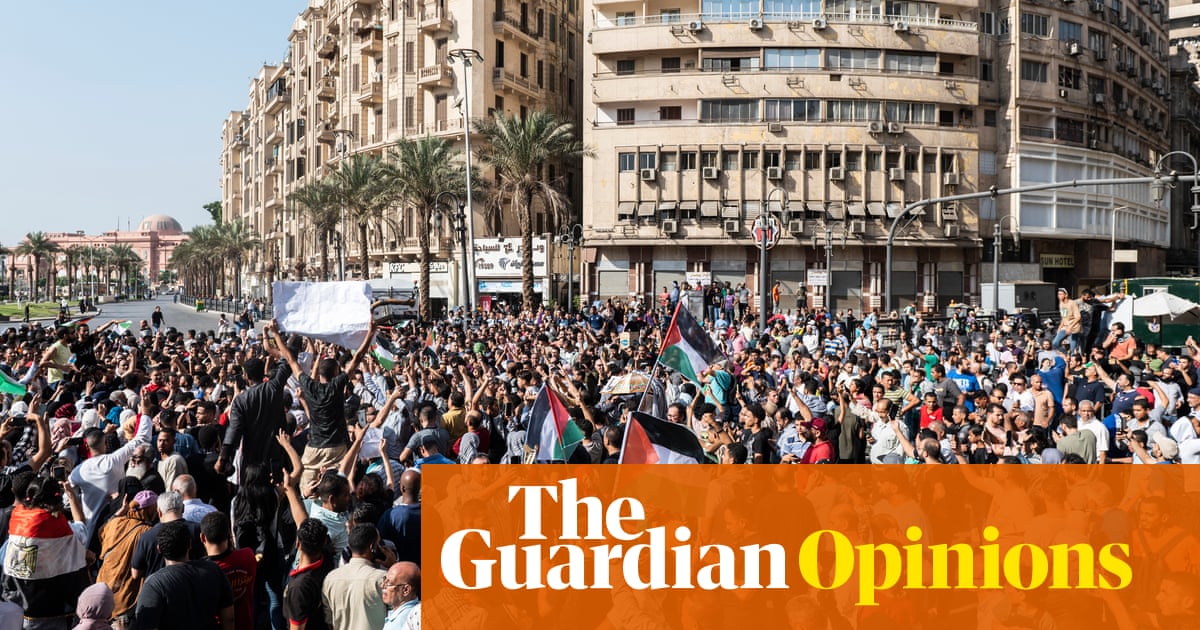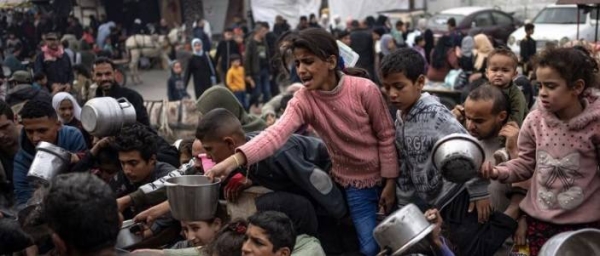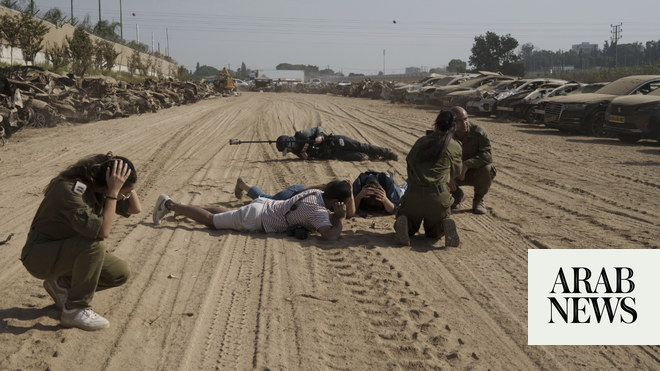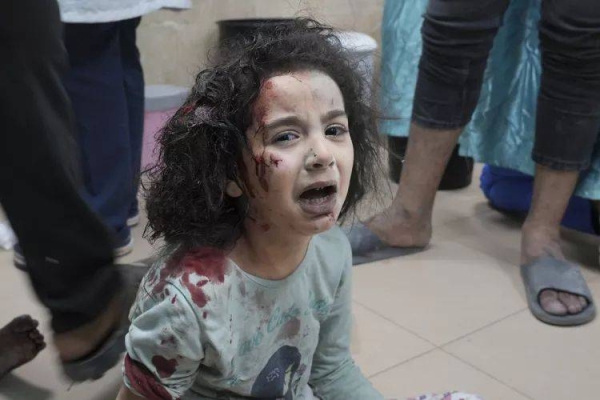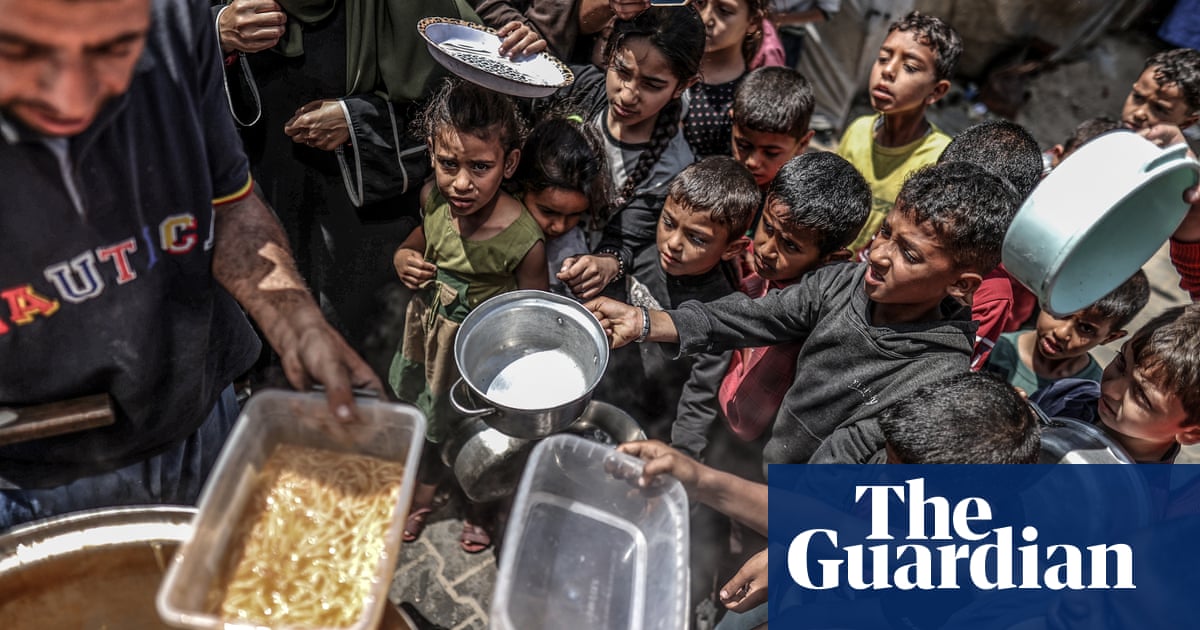
Even if the war in Gaza ended tomorrow, for some of the Palestinian territory’s children, it would not help. Hunger and malnutrition have already claimed an estimated 27 young lives, and for many more, it may be too late to reverse the excruciating toll that starvation takes on small, growing bodies.
Nuzha Awad’s triplets, Malek, Khader and Moustafa, born two months before the war began when Hamas attacked Israel on 7 October, did not stop crying as she spoke to the Guardian. She fled Gaza City when food and formula for her babies began to run out; in their new home, a makeshift tent in the central town of Deir al-Balah, she is still desperately afraid for their futures.
“At this age a child should weigh 8 kilos. They weigh 2 kilos … They don’t have thighs yet. At this stage they are supposed to be crawling and preparing to walk. And now you can see the state they’re in,” she said.
“Are these the arms of an eight-month-old child? … It’s death there, death, death. Death in the literal meaning of the word.”
UN-backed food insecurity experts assessed in mid-March that famine n Gaza could set in between later that month and mid-May. Last week, Samantha Power, the head of the US humanitarian and development agency, USAid, became the first American official to confirm publicly that in some areas, famine had already taken hold.
Malnutrition is spreading at record pace among children, according to the World Food Programme. More than 90% of young children and pregnant and breastfeeding women are subsisting on two or fewer food groups – mainly bread – with no access to fruit, vegetables, milk or proteins.
Almost half of Gaza’s population of 2.3 million is under 18, and the effects of starvation may follow those who survive for the rest of their lives: their brains and bodies, without the nutrients needed for growth, cannot properly develop, leading to health problems such as poor eyesight and learning difficulties later in life.
The strip’s healthcare system has collapsed, and a lack of water and food has made it nearly impossible for medical staff to alleviate the symptoms of malnutrition in vulnerable people.
Jihan Abu al-Jidyan, a mother of five waiting in a long line for watery soup in Deir al-Balah, is nine months pregnant. She is severely malnourished, and it is unlikely her body will be able to produce milk when her baby arrives. Her newborn is likely to have a low birth weight, which is associated with infant mortality, and will also be at severe risk of malnutrition.
“Ever since the war began I have been coming to the food charity. There are seven of us and I can’t find food for everyone. It’s a tough situation,” she said.
A promised surge in aid Benjamin Netanyahu promised Joe Biden after Israel’s killing of a team of international aid workers earlier this month has so far failed to materialise, charities say.
Israel has claimed that the daily passage of trucks entering Gaza has doubled since the Biden-Netanyahu call on 4 April, to about 400. The UN’s relief agency for Palestinians said, however, that after a brief peak of 246 on 9 April, the numbers of trucks crossing into Gaza had fallen the next day to 141.
Getting assistance to where it is needed most in Gaza, particularly the northern half of the territory, has been made difficult by damaged roads, a lack of fuel, a breakdown of public order and what aid agencies have described as unnecessary bureaucratic hurdles imposed by Israel.
Israeli restrictions on the entry of humanitarian aid may amount to the war crime of deliberate starvation, the UN has said. Israel says it is facilitating aid, and the UN and relief groups are at fault for issues over the quantity and pace of delivery.






